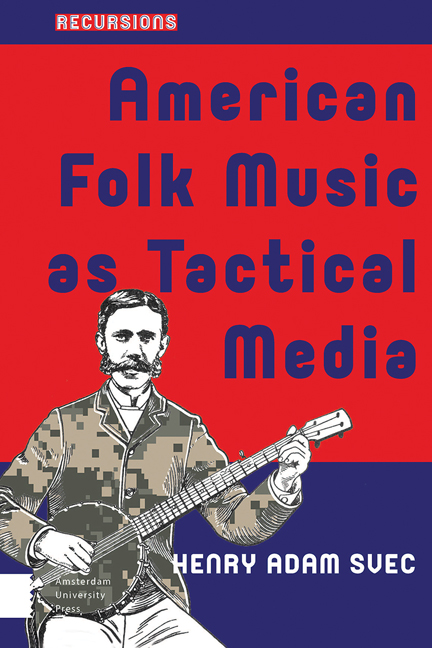Book contents
- Frontmatter
- Contents
- Acknowledgments
- Introduction
- 1 Alan Lomax’s Deep Rivers of Digitality
- 2 Pete Seeger’s Time-Biased Tactics
- 3 Bob Dylan’s Noisy Faces
- 4 A Folk Approach to Imaginary Media
- 5 Another Authentic Folk Is Possible
- 6 American Folk Music as Strategic Media
- Epilogue
- Notes
- Lyrical Credits
- References
- Index
1 - Alan Lomax’s Deep Rivers of Digitality
Published online by Cambridge University Press: 28 January 2021
- Frontmatter
- Contents
- Acknowledgments
- Introduction
- 1 Alan Lomax’s Deep Rivers of Digitality
- 2 Pete Seeger’s Time-Biased Tactics
- 3 Bob Dylan’s Noisy Faces
- 4 A Folk Approach to Imaginary Media
- 5 Another Authentic Folk Is Possible
- 6 American Folk Music as Strategic Media
- Epilogue
- Notes
- Lyrical Credits
- References
- Index
Summary
‘Record grooves capture the vibrations of real bodies whose stupidity, as is well known, knows no boundaries.’
Friedrich Kittler‘The modern computer, with all its various gadgets, and all its wonderful electronic facilities, now makes it possible to preserve and reinvigorate all the cultural richness of mankind.’
Alan LomaxA Cybernetic Song Collector
‘Cybernetics’ describes a diverse collection of research and debate happening in the United States after the Second World War that pointed, in several respects, beyond previous research paradigms. ‘Cybernetics’ derives from a Greek word for ‘governor’ or ‘regulator’, and the work of Norbert Wiener and other ‘first-order’ cyberneticists was, in this initial moment, concerned generally with ways in which networked assemblages, involving both human and machinic contributors, can achieve order or stability despite potentially ongoing threats to the system, a state of being that these thinkers referred to as ‘homeostasis’. From thermostats, to automated weaponry, to maze-running mice, to human beings, to self-reproducing automata (all experiments generated by the scene), exemplary organisms were able to receive data from their environment and act accordingly.
How is it that a machine and a human could come to cooperate on a project? A key concept in the early waves of cybernetics was information, which famously received competing definitions in the work of the two most influential contributors. Claude Shannon defined information as a measurement of the possibilities within a given communicative situation, thus tying the concept to the earlier thermodynamic notion of entropy (the more information, the more possibilities). Wiener, on the other hand, defined information as the negentropic condensation of disorder into a concrete set or unit of transmissible data: ‘Information is a name for the content of what is exchanged with the outer world as we adjust to it, and make our adjustment felt upon it.’ In Wiener's definition, we see the more influential version in digital culture more broadly – information as message, as content – a conception that ‘reifies’ information, as Katherine N. Hayles has argued, which thus moves it away from a total situation and towards an weightless object that can be exchanged, controlled, bought, or sold.
- Type
- Chapter
- Information
- American Folk Music as Tactical Media , pp. 29 - 52Publisher: Amsterdam University PressPrint publication year: 2017



